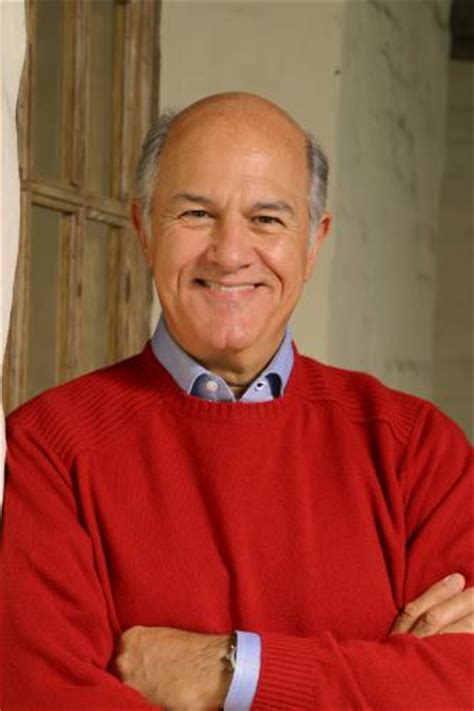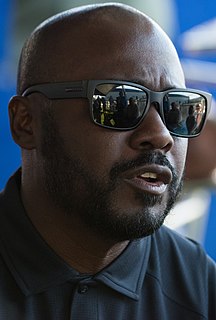A Quote by James M. Kouzes
Leaders strengthen credibility by demonstrating that they are not in it for themselves, instead they have the interests of the institution, department, or team and its constituents at heart. Being a servant may not be what many leaders had in mind when they chose to take responsibility for the vision and direction of their organization or team - but serving others is the most glorious and rewarding of all leadership tasks.
Related Quotes
To my mind, you cannot speak about the need for leadership within our communities without being prepared to take on responsibility yourself. It's not enough to point the finger at those who have let us down and to expect others to come forward and fix our problems. Nor can anyone afford to call themselves a leader unless they truly have the interests of our community at heart. Too many people like to think they are leaders and too many are identified by the media as leaders who are not really leaders at all.
Leaders encourage others to continue the quest and inspire others through courage and hope. Leaders give heart by visibly recognizing others' contributions to the common vision. With a thank you note, a smile, an award, and public praise, the leader lets others know how much they mean to the organization.
You have to work and think about how we can make this world a better place for all. This is what I'd really like to ask our young leaders. We will try as leaders of today to minimise the problems which we will hand over to you. But it is to you. You have to take ownership and leadership of tomorrow. For that to be possible, you have to strengthen your capacity and widen your vision as a global citizen.
The leaders who work most effectively, it seems to me, never say "I." And that's not because they have trained themselves not to say "I." They don't think "I." They think "we"; they think "team." They understand their job to be to make the team function. They accept responsibility and don't sidestep it, but "we" gets the credit. This is what creates trust, what enables you to get the task done.
As a servant leader the way you serve the vision is by developing people so that they can work on that vision even when you're not around. The ultimate sin of an effective servant leader is what happens when you are not there. That was the power of Jesus' leadership-the leaders He trained went on to change the world when He was no longer with them in bodily form.
Most people think leadership is about being in charge. Most people think leadership is about having all the answers and being the most intelligent person or the most qualified person in the room. The irony is that it is the complete opposite. Leadership is about empowering others to achieve things they did not think possible. Leadership is about pointing in the direction, articulating a vision of the world that does not yet exist. Then asking help from others to insure that vision happens.
Leadership is a choice. It's not a rank, it's a choice. I know many people who are at the top of their organization who have authority. We have to do what they say because they have authority over us. But they're not leaders. We wouldn't follow them. They may be at the top of the company but they're not leaders.
Leadership is creating a state of mind in others. The difference between being a leader and manager, all due respect to managers, is that leaders have to create states of mind. But a leader, first of all, has to have a clear state of mind, which is usually her own vision, which energizes her, motivates others, and then creates that state of mind in others.
Good leaders set vision, missions, and goals. Great leaders inspire every follower at every level to internalize their purpose, and to understand that their purpose goes far beyond the mere details of their job. When everyone is united in purpose, a positive purpose that serves not only the organization but also, hopefully, the world beyond it, you have a winning team.
"Leadership" is a big topic today. We know that the world - nations and communities in addition to companies - needs more and better leaders. So I wanted to explore how leaders make a difference, how they can shift a negative cycle, turn around a losing organization, propel a team to victory when conditions aren't perfect. I saw that what leaders do is build confidence in advance of victory. Then the confidence they produce makes the hope of success turn into the reality of success, because people behave differently when they are surrounded by a culture of confidence.
































